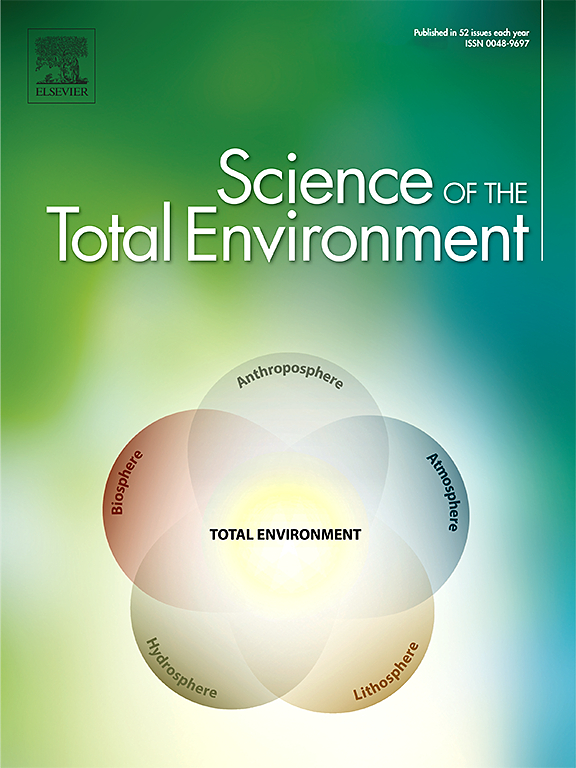Extracellular polymeric substances of plant-growth-promoting rhizobacteria modulate the positive plant-soil feedback in maize via soil conditioning
IF 8.2
1区 环境科学与生态学
Q1 ENVIRONMENTAL SCIENCES
引用次数: 0
Abstract
This study investigates the role of plant-growth-promoting rhizobacteria (PGPR) in plant-soil feedback (PSF), which is often negative in agriculture due to monocropping and poor soil management. While PGPR enhance soil health and crop productivity, their influence on PSF remains underexplored. The study examines two PGPR strains isolated from the rice rhizoplane: Aeromonas hydrophila QS74, a high-extracellular polymeric substances (EPS)-producing strain, and A. hydrophila QSRB5, a low-EPS-producing strain, to assess their role in PGPR-mediated positive PSF. An in vitro experiment evaluated bacterial growth, biofilm formation, and EPS production using synthetic, rice, and maize root exudates as sole carbon sources. A microcosm study assessed PGPR effects on soil properties, followed by a pot culture experiment to evaluate maize growth under PSF conditions. Results revealed that root exudates significantly promoted QS74 growth, biofilm formation, and EPS production compared to QSRB5. Soil inoculation with QS74 and root exudates enhanced soil organic carbon, microbial biomass, labile carbon, and dehydrogenase activity and aggregate stability indices, primarily due to increased EPS production. During soil conditioning stage of PSF, QS74 outperformed QSRB5 and uninoculated control by enhancing nutrient availability, soil biology and aggregate stability, leading to enhanced crop growth, nutrient uptake, and soil health in subsequent crop. This study demonstrates that EPS produced by PGPR facilitates the effective utilization of root exudate carbon during colonization, enriches the soil carbon and nutrients reservoir, enhances nutrient availability and positively influences the subsequent crop growth through plant-soil feedback. Furthermore, it provides a framework for evaluating PGPR-mediated positive PSF in agriculture.

求助全文
约1分钟内获得全文
求助全文
来源期刊

Science of the Total Environment
环境科学-环境科学
CiteScore
17.60
自引率
10.20%
发文量
8726
审稿时长
2.4 months
期刊介绍:
The Science of the Total Environment is an international journal dedicated to scientific research on the environment and its interaction with humanity. It covers a wide range of disciplines and seeks to publish innovative, hypothesis-driven, and impactful research that explores the entire environment, including the atmosphere, lithosphere, hydrosphere, biosphere, and anthroposphere.
The journal's updated Aims & Scope emphasizes the importance of interdisciplinary environmental research with broad impact. Priority is given to studies that advance fundamental understanding and explore the interconnectedness of multiple environmental spheres. Field studies are preferred, while laboratory experiments must demonstrate significant methodological advancements or mechanistic insights with direct relevance to the environment.
 求助内容:
求助内容: 应助结果提醒方式:
应助结果提醒方式:


